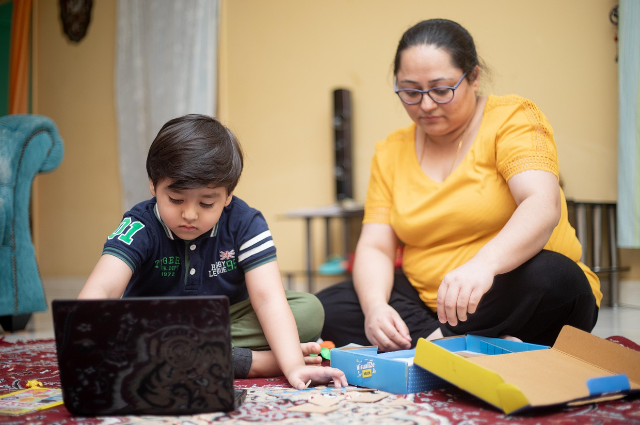
The system of education has taken a drastic turn after the imposition of digital technology during the period of lockdown. Education had already been fabricated into a well-structured form of indirect business. In other words, education was crucially monetised. And in that monetisation, somehow, the morality of the virtue of education was slowly starting to fade. It was only a formal goal, and its social importance was at stake. The system of direct textbook studies was a criticised idea itself. It tended to bore the students. Yet what was a serious contribution is the consistency of acknowledged importance and seriousness of responsibility.
A major revolution in the field of education was introduced a long time before the lockdown. It was when the EdTech platforms took hold among students. Initiating their purpose of practical knowledge, easy to absorb, their goal was clear. It aimed at an easier way of propagating practicality. In other words, this was an attempt at making education more interesting and not just limited to typical classroom learning. But, this was not in opposition to classroom learning, rather in alignment with the very traditional idea. It wasn’t a criticism but an approach towards a better education. A mixture of tradition and modernity to educate the future.
It’s inevitable, when technology starts developing on more broader social scale, imitating help for humans in the fast-paced world, it will take over things. It will start sharing a very social space with the conventional notions and would have implications for things that aren’t even close to being technical. In other words, it would technicalize approaches and take control, but not with full authority. That’s exactly what happened with technology and education. The innovation of this hybrid was supposed to radicalise education. But with time has tended to de-socialise education. Though indeed, the development of technology is not entirely to blame. Rather, a subconscious participation of tired and lazy humans has turned it into a forceful social dependency.
This forceful dependency was deepened further during the stages of lockdown when online classes became the only option. But screens did not assure seriousness or responsibility of acknowledgement and understanding. The result was half-edged education that de-influenced minds and diverted them towards a conscious choice of avoidance and ignorance that could be overlooked and forgiven. Yet education had to be tested. So when virtual connections failed to approach, they switched to a faster mechanism of understanding the practical approach of everyday knowledge without attempting to understand. The alignment with traditional learning was obstructed, and digital platforms for education started rationalising their roles more widely to become profitable business ventures. Instead of thus making education easier, their only goal was to attract as many clueless students as they could.
When you look at young students these days, their form of education is not a compromise but an absolute void of empty ideologies. The traditional sense of education has lost its grip on the minds of students. It had started losing its grip during the initial stages itself as a bunch of unseriousness shifted towards what seemed like an intellectual choice. The practicality of their interactions is designed to be digitally oriented. The function of their brains that is associated with learning has perhaps now adapted itself to a robotic method of perceiving education. The question that is then raised is, will there be an educational gap between generations?
The Ed-tech platforms have taken over a huge social space. From By-Ju’s to Unacademy to other channels on YouTube that once used to deliver quality education have now turned themselves into something less of that sort, if one can at all call it that. Teachers have become lazy. And so have students. The mass inclination towards Edu-tech platforms has proved to be an educational threat. There’s neither serious textbook learning nor an external outlook. The same thing continues in a cycle, and boredom continues to be a factor of lost interest. The once-promised quality has degraded to a level of compromise. If one does not understand logic or reason, they simply do not wish to understand it at all. The attitude of curiosity has been terribly converted into an attitude of compulsion and habit. There is always an option.
The radicalisation of education is now disguised as dependence. The competition between traditional learning and digital learning is now a tangible source of standardised manipulation. When even traditional as well as modern educational approaches were socially questioned, the emergence of digital education made it a trilogy of educational and social criticism. None of them challenge the existing norms rather play a crucial part in letting them persist over and over. The dependence of knowledge has now been digitised. Which is to say, the practicality has been digitised itself. The dependence is out of compulsion.
